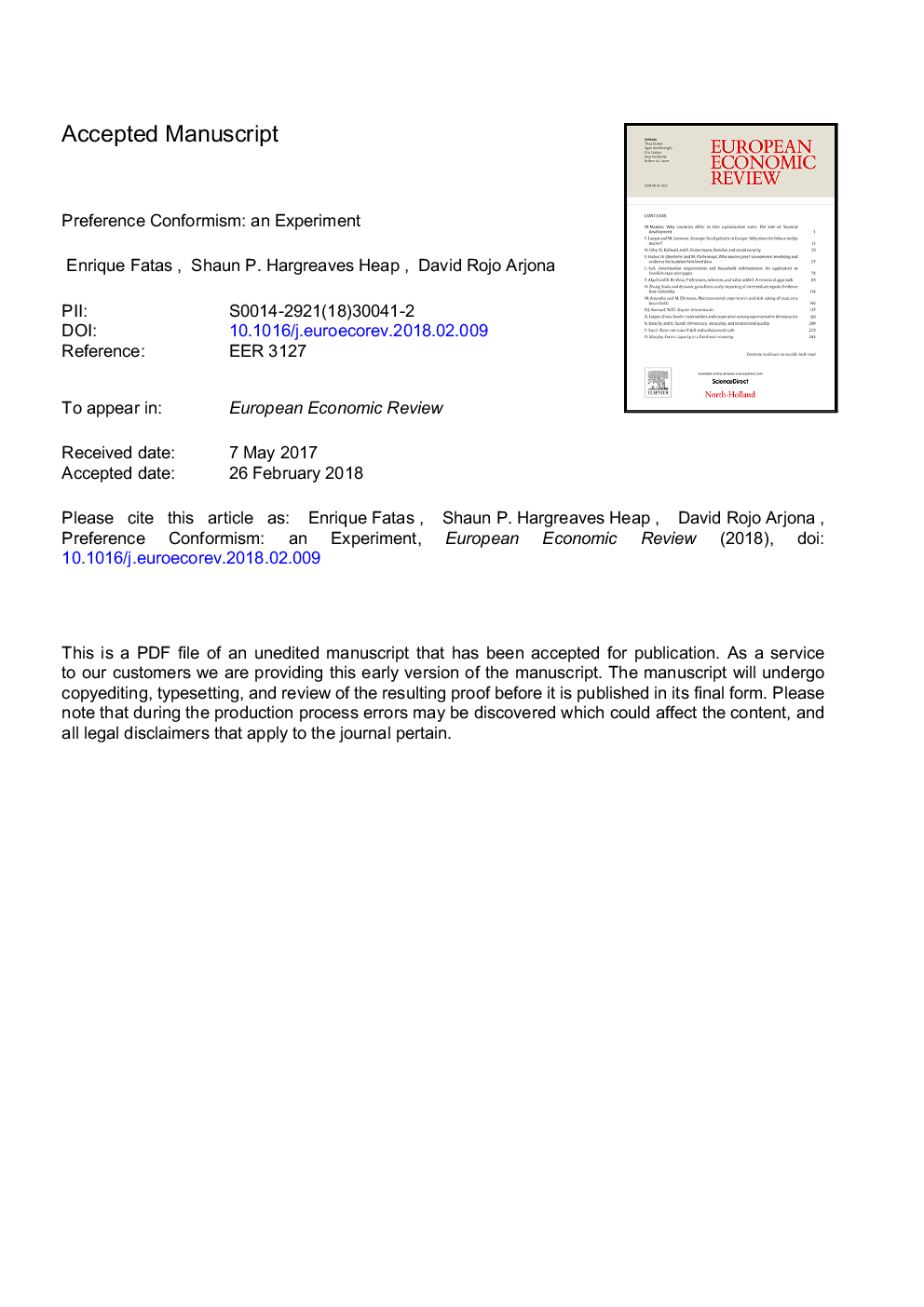| Article ID | Journal | Published Year | Pages | File Type |
|---|---|---|---|---|
| 7351404 | European Economic Review | 2018 | 35 Pages |
Abstract
This paper reports on an experiment designed to test whether people's preferences change to become more alike. Such preference conformism would be worrying for an economics that takes individual preferences as given ('de gustibus es non disputandum'). So the test is important. But it is also difficult. People can behave alike for many reasons and the key to the design of our test, therefore, is the control of the other possible reasons for observing apparent peer effects. We find evidence of preference conformism in the aggregate and at the individual level (where there is heterogeneity). It appears also to be more consistent with Festinger's epistemic account of why it might occur than that of Social Identity Theory.
Related Topics
Social Sciences and Humanities
Economics, Econometrics and Finance
Economics and Econometrics
Authors
Enrique Fatas, Shaun P. Hargreaves Heap, David Rojo Arjona,
